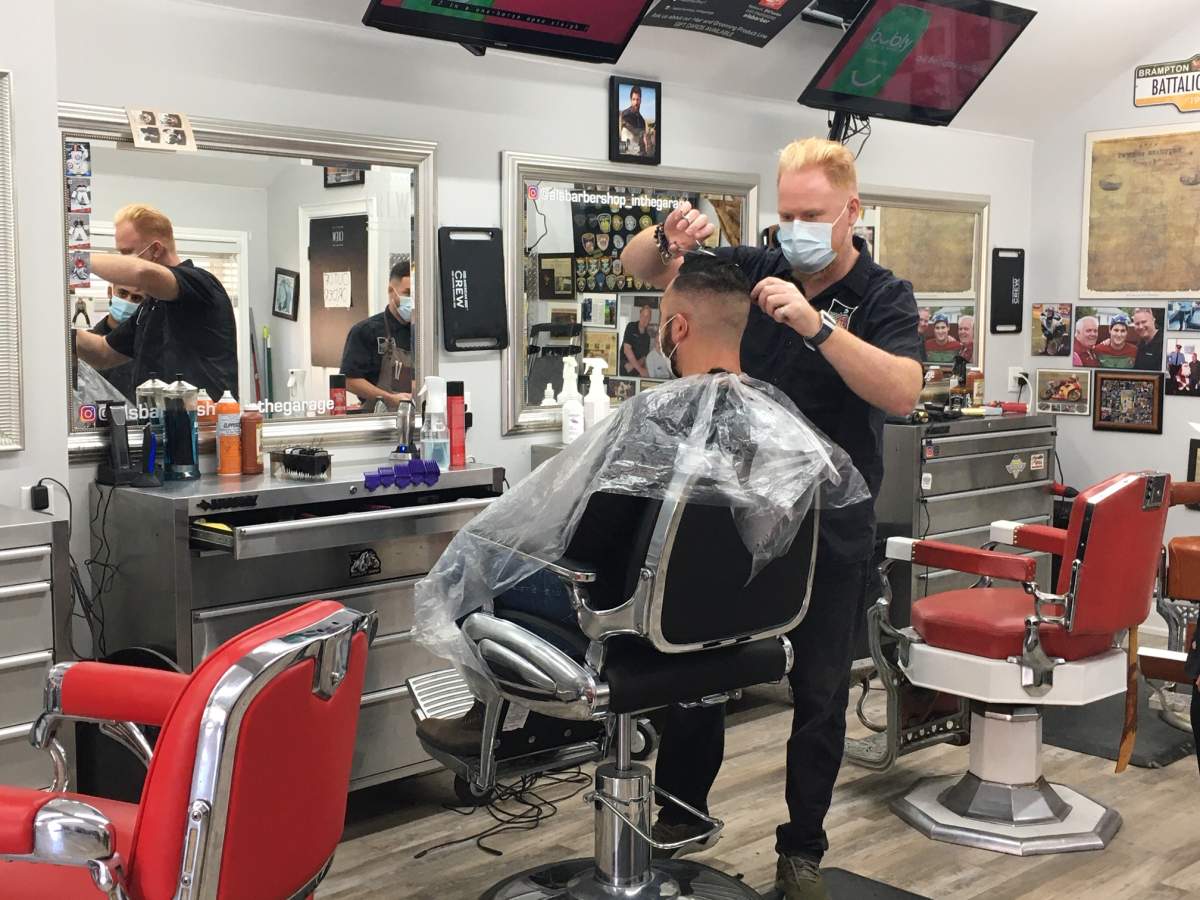The main strip of downtown Brampton has been quiet for most of this year on its busiest days. The original COVID-19 lockdown seems to have permanently affected how and whether any of the small businesses on Main and Queen streets do business.

The scene was no different Friday afternoon before an announcement by Premier Doug Ford confirming Brampton small business owners’ worst fears: a 28-day, COVID-19-related lockdown.
For Rob Rutledge, owner of the long-running Al’s Barbershop, it’s hard news to swallow. He said his shop is still recovering from the last lockdown.
“I’m running at 10, 15 per cent,” he told Global News.
Rutledge said he has fought to avoid laying off a single staff member and has been following every prescribed safety measure.
He said he has seen a big dip in customers who have either been too scared to come get their hair cut since he reopened, or simply haven’t needed to because they’re constantly working from home.
Thursday was another slow day.
“Between five guys, we did 21 haircuts … I can’t even keep the lights on with that,” he said.

Get weekly health news
Speaking with Global News on Friday, Brampton Mayor Patrick Brown characterized the forced closure of small businesses as “tinkering around the edges.”
He said the bulk of the city’s COVID-19 transmission occurs in industrial and essential workplace settings, citing 116 workplace outbreaks in Peel Region — many of those businesses in Brampton.
In fact, cumulatively, Brampton has the highest number of COVID-19 cases in Ontario and just over 62 per cent of all the cases in Peel Region.
Brown called on the federal government to help his city build an isolation centre for COVID-19 patients, award sick benefits to essential workers and help Brampton achieve greater testing capacity. He said Premier Doug Ford assumed him the Ontario government will advocate for those things on Brampton’s behalf.
Dr. Lawrence Loh, Peel Region’s medical officer of health, acknowledged the importance of those requests. But he said he is far more positive about the short-term benefits of the lockdown announced by the province on Friday.
He told Global News a particular Peel Region hospital had 74 “no bed admits” in its emergency room Friday; meaning there was no room left in traditional beds. He said a lockdown will help the region’s hospitals cope.
Many of the region’s small businesses, however, are largely left to cope on their own. While retail has the option of curbside pick-up, restaurants can do take-out, but personal care services like salons and barbershops are left with no alternatives but to close down temporarily.
Meanwhile, Rutledge said for some shops, including his own, it may be permanent.
“It’s all a numbers game right now … I’m trying to do everything I can to keep the doors open, but it’s getting very close,” he said.













Comments